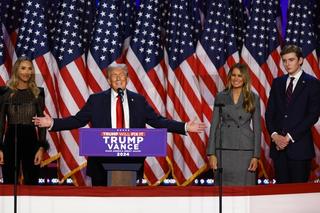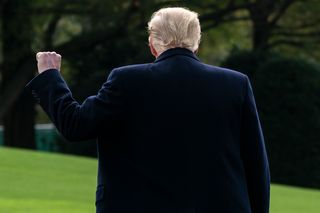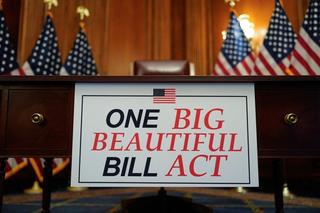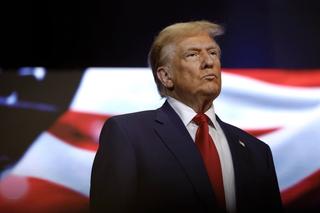Kamala Harris was hindered and Donald Trump boosted by economic issues that have plagued incumbent governments around the world.
Votes are still being counted in an American election that could not have presented a greater contrast between the candidates. The results have been pointing towards Donald Trump, but one must be careful to temper any euphoria or schadenfreude about the result.
First, despite growing polarisation, anti-democratic rhetoric by Donald Trump, and Russian attempts at election disinformation, the US system performed well. In a country of 333 million people spread over nine time zones one can expect to see stories about extremist groups plotting mischief and Russian social media trying to seed doubt about election integrity.
Yet voting was smooth across the country with very few exceptions and over 80 million Americans voted early in a demonstration of their own confidence that the system is fair. New legislation to safeguard certification of election results and vastly improved readiness by the authorities mean a repeat of the January 6 mayhem or other disruption is unlikely. And while majorities of Americans express acute concern in polls about the state of their politics right now, they also say they are optimistic about the longer-term trajectory of American democracy.
It would also be a mistake to assume that Donald Trump’s style of brash and offensive politics is the new normal.
Nor are the cultural battle lines in America as hardened as pundits like to argue. Donald Trump performed well primarily for the same reason opposition leaders performed well in elections in New Zealand, France, or Japan – because their publics are unhappy about cost of living and want change. As Clinton’s strategist James Carville famously argued in the 1992 election, “it’s the economy stupid”.
Only one third of Republican voters self-identify as “MAGA”, (the hardcore Make America Great Again populists who come to the Trump rallies wearing the signature red hats). More of Trump’s support came from voters who want changes in the economy. This is just not a good time for incumbents anywhere.
The cleavages in American politics and society are constantly shifting, even as politics remain broadly polarised. In this election, the gender divide was the greatest in modern American history, with polls showing an almost 50-point gap between non-educated men supporting Trump and college-educated women supporting Harris. That also explains why Trump did so much better among African American and Hispanic voters and younger voters than he did four years ago. The “bleed” of support to Trump from those Democratic-oriented constituencies is partly about culture wars but also about anxiety regarding economic opportunities among young men. That could shift again in 2026, though.
It would also be a mistake to assume that Donald Trump’s style of brash and offensive politics is the new normal. It was not that long ago that candidates like John McCain or Mitt Romney put country first and pledged to work with Barack Obama after he won. There are structural reasons why Trump has dominated the Republican Party but no structural reasons why leaders of character like McCain cannot or will not rise to the top again in future. Given the macro theme of unhappiness about the economy, a more optimistic Republican candidate like Nikki Haley could have run away with this election.
One must also be guarded about how much of a mandate the winner will bring to governing. Harris had blurred her progressive roots with chants of “USA! USA!” at the Democratic National Convention and sought the embrace of arch-conservatives like Liz Chaney to win over anti-Trump Republicans. But her proposals for inflation-causing government expansion would have to pass Congress with a Republican-controlled Senate.

Trump’s narratives are divisive, disruptive, and confronting …and hardly the result of careful policy planning or consensus-building. There are three groups that would come into office with Trump all claiming to speak for him: Wall Street big money donors, more traditional national security Republicans, and bomb-throwing MAGA populists.
The first two groups will dominate positions that require Senate confirmation while the populists will come in as advisers but have easy access to the Oval Office. Meanwhile, the Congress and the public on a broad basis support alliances and initiatives like AUKUS or the Quad, which were built with bipartisan support over multiple US administrations. When Trump mused about withdrawing troops from Korea in 2018, for example, he was pre-emptively blocked by Republicans in Congress.
On climate policy or trade Trump would pose bigger headaches for Australia, but even those issue areas are more complicated than the campaign rhetoric reveals. For example, tariffs would cause retaliation and increase the cost of living for Americans – exactly what voters say they do not want. And while the US-Australia Climate, Critical Minerals and Clean Energy Transformation Compact would probably have to find a new name under Trump, much of the agenda around the energy transition and minerals could likely continue under different packaging.
Democrats were shocked and angered by Trump’s win in 2016. This time they will be deflated and resigned. They knew it would be a tough battle. It was harder for Harris to make her case because the country and democracy survived last time – and it will again.




.jpg?rect=0,80,3000,1989&fp-x=0.5&fp-y=0.44772296905517583&w=320&h=212&fit=crop&crop=focalpoint&auto=format)




